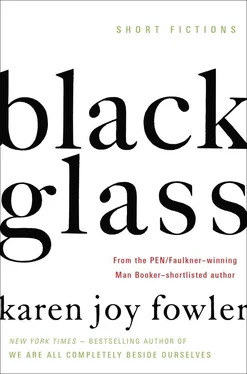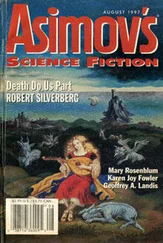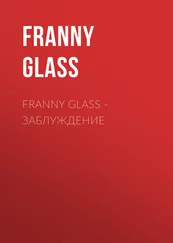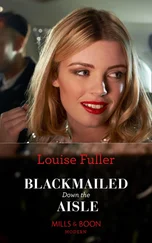In Óbidos, where children at twelve play soccer and have sex, the man who sold them supplies had told them a story. A cautionary tale — Tilly could see this in retrospect. It involved the freshwater dolphin called the boto. The boto could take a woman, penetrating her in the water, or in human male form on shore, or even in her dreams. She would grow pale and die in childbirth, if she lasted that long, and her child would be deformed — having the smooth face of the father, his rubber skin, a blowhole on the top of the head where the fontanel should be.
Tilly had moved her pad so that it was, in relation to the door, in the same spot as her bed was in her bedroom. Alice never mentioned it, though she’d had to move Alice’s pad, too. Alice was gone at the time. They took Alice out every single day. It was hard not to envy Alice for this, no matter how she looked when she came back.
An unseen bird, a trogon, began to shriek nearby. The sound rose above the other rain-forest noises in the same way a police siren always buries the sounds of normal traffic. Shhh. The door was a curtain of nylon which whispered when the wind blew. The faint smell of mimosa, just discernible over the smell of sleep and sweat and last night’s urine, passed through the tent and was gone. Alice’s pad was as far away from the door as it could be. Tilly propped herself on one elbow to look at Alice, who was staring up at the ceiling. “Alice,” Tilly said. Any word you spoke in this little room was spoken too loudly. Shhh said the door.
“I’m still here,” said Alice. “Did you think I might not be?” She moved and caught herself in mid-movement. Her hair was snarled in the back. She had stopped braiding it weeks ago when her last rubber band had snapped. “My back is sore,” she said. “I ache all over.” She looked directly at Tilly. “I thought of another one. The boy in the bubble.”
This was a game Alice had made up to pass the time. She and Tilly were making a list of famous prisoners. The longer the game went on, the more flexible the category became. Tilly wanted to count Howard Hughes. You could be self-imprisoned, Tilly argued. But Alice said no, you weren’t a prisoner if there wasn’t a jailer, and the jailer had to be someone or something on the outside. Outside the tent something shifted and coughed.
When the camp was violated, Alice and Tilly had assumed the trespassers were Indians — what else could they think? — although it had surprised them. A number of the local tribes were considered low contact but hardly untouched. There were the Hixkaryana, the Kaxuiana, the Tirio. They had shotguns and motorboats. They had been to the cities. If you mentioned Michael Jackson to them they would nod and let you know you were not the first. The man who advised them on supplies in Óbidos had been from the Tirio tribe. His advice, though lengthy, had been essentially indifferent; the spectacle of two women on holiday in the rain forest had aroused less comment than they expected. He had made one ominous observation in Portuguese. “It is quite possible,” he had said, “to go into the forest as a young woman and come out very old.”
Alice and Tilly should have gone to FUNAI for permission to visit the Indians, who were protected by the Brazilian government from curious tourists. But Alice was only interested in the terrain. She had hardly given the Indians a thought when she planned the trip. Steven had asked about them, but then Steven asked about everything. He was in New York City riding the subways and worrying about Tilly out here with the savages. Steven had been mugged twice last year.
Tilly had insisted on moving the camp after the intrusion, back from the river but not too far, since they still needed water and Alice was still taking measurements. It was a lot of work for nothing. Tilly was setting up the tent again when she realized she was being watched.
From a distance they still looked like Indians. Tilly saw shadows of their shapes between the trees. They paced her when she went to the river for water. She wondered how she’d ever be able to bathe again, knowing or not knowing they were there. She wouldn’t even brush her teeth. She went back to camp and argued with Alice about setting a watch at night.
By then it was afternoon. Alice had made lunch. “We can decide that later,” she said. “There will be plenty of time to decide that later.” But later they came right into the camp, and they didn’t look like Indians at all. Their heads were hairless and flattened uniformly in the back. The features on their faces were human enough to be recognizable: two eyes deep set into pockets of puffy skin and two nostrils flush with the rest of the face, expanding and contracting slightly when they breathed. Their mouths were large and mobile. They had a human mix of carnivorous and herbivorous teeth. If Tilly had only seen one she might have thought it a mutation of some sort, or the result of disease or accident. In books she had seen pictures of humans deformed to a similar degree. But these were all the same. They were aliens. She told Alice so.
Alice was not sure. There was nothing off-world about their clothing, drapes of an undyed loose weave, covering the same parts of the body that humans felt compelled to conceal. She pointed to the tampons, which dangled by their strings from cloth belts. “They’ve taken trophies,” said Alice. “They’ve got our scalps. Doesn’t that strike you as rather primitive for a race with interstellar capabilities?” Alice invited them into the tent.
Tilly did not follow. Tilly had the sense to be terrified. She was ready to run, had a clear path to the river, hardly stopped to notice that flight would have meant abandoning Alice. But there were more and more of them. She never had the chance. On the way into the tent one veered toward Tilly. She ducked away, but the arm was longer than she expected; the hand landed on her shoulder. There was an extra flexibility in the fingers, an additional joint, but Tilly didn’t notice it then. The hand was cooler than her own skin. She could feel it through her cotton shirt and it pulsed, or else that was her own heartbeat she felt. She was so frightened she fainted. It was a decision she made; she remembered this later. A blackening void behind her eyes and her own voice warning her that she was going to faint. Shall we stop? the voice asked, and Tilly said, No, no, let’s do it, let’s get out of here.
The clasps of the tent door clicked together like rosary beads as it was brushed to one side. Breakfast had arrived. The dishes were from Tilly’s and Alice’s own kits. Tilly’s was handed to her. Alice’s was set on the floor by the door. One of them stayed to watch as Alice and Tilly ate.
Tilly’s plate had a tiny orange on it, porridge made of their own farinha, and a small cooked fish. There were crackers from their own store. Alice was given only the crackers and fewer of them. From the very first there had been this difference in their treatment. Of course, Tilly shared her food with Alice. Tilly had to move onto Alice’s pad to do this; Alice would never come to Tilly. She made Tilly beg her to eat some of Tilly’s breakfast, because there was never enough food for two people. “What kind of fish do you think this is?” Tilly asked Alice, taking a bit of it and making Alice take a bite.
“It’s a dead fish,” Alice answered. Her voice was stone.
Tilly was very hungry afterward. Alice was hungry, too, had to be, but she didn’t say so. “Thank you, Tilly,” Alice would say. And then two more would come, and the three of them would take Alice.
Tilly was always afraid they would not bring her back. It was a selfish thing to feel, but Tilly could not help it. Tilly cared about Alice, and Alice should belong to the set of things inside the tent. Everything else Tilly cared about did not. Like Steven. She missed Steven. He was so nice. That’s what everyone said about Steven. Alice was always pointing this out to Tilly. The thing about Steven, Alice was always saying, was that he was just so nice. Alice didn’t quite believe in him. “And women don’t want nice men anyway,” said Alice. “Let’s be honest.”
Читать дальше












